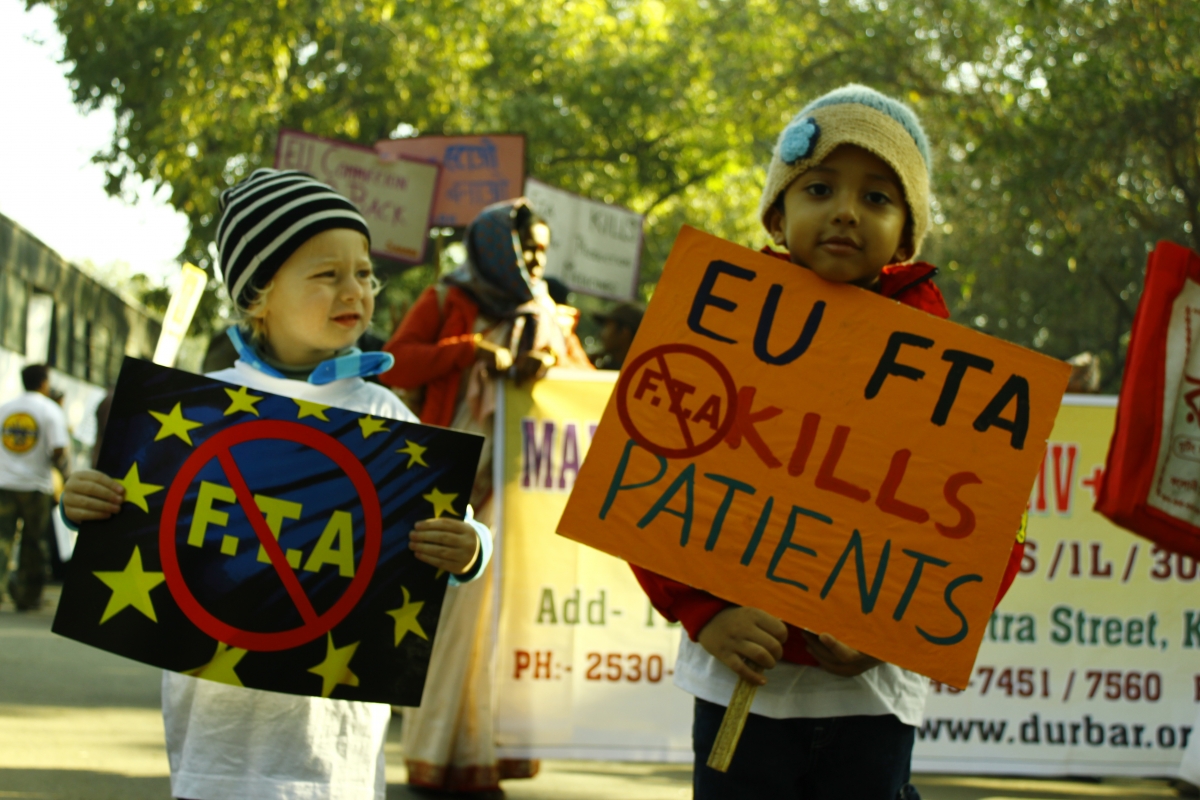Standing up to patent bullying
The Hindu | 22 May 2016
Standing up to patent bullying
by B. Vinod Kumar
Low-cost, quality and generic medicines will play a critical role, if governments are to realise the sustainable development goal (SDG) of universal access to health care. Access to quality generic treatment is particularly important for households that pay for medicines out-of-pocket. When poor households lack access to affordable generics, they forego treatment, sell precious assets, or make difficult choices between paying for medicines and other basic necessities.
The presence of multiple generic competitors in India has reduced the cost of cancer and HIV treatments by as much as 90 to 1,000 per cent. For instance, first-line HIV treatment in the U.S. that costs over Rs.16 lakh annually for just one patient will work out to be approximately Rs.7,000 in the National AIDS Control programme (NACP).
India’s crucial role
India is at the centre of the world’s generic drug production as it is one of the few countries with the technical capacity to produce raw materials, also known as active pharmaceutical ingredients. When generic substitutes are not available in India —due to patent monopoly — they lead to high drug prices as only the proprietary companies can manufacture them.
The Ministry of Commerce must be cautious of Free Trade Agreements being negotiated with the European Union as well as the Regional Comprehensive Economic Partnership that further strengthen or extend intellectual property (IP) monopolies. These will subsequently delay generic competition and the associated drop in prices, which will have a negative impact upon access to affordable medicines from domestic producers. Parliament’s inclusion of public health safeguards in its patent law through an amendment in 2005 set a progressive precedent. It substituted Section 3(d) of the Patents Act such that frivolous changes which did not increase the efficacy of a medicine would not make it eligible for a patent. Thus, it protected generics from the practice of “evergreening”. Use of these safeguards by patient groups, courts and the patent office has now become a target of the multinational pharmaceutical lobby.
The U.S. Trade Representative’s (USRT) “Special 301 Report” has, once again, placed India on a ‘Priority Watch List’ — of countries whose intellectual property laws it dislikes. This move is to create pressure on the Ministry of Commerce and Industry. Not satisfied with this move, the U.S. Trade Representative now has an “action plan” for India with benchmarks to hold India “accountable” for IP-related trade practices that disadvantage American companies. The Indian government should reject such blatant interference in our internal policies on intellectual property. Commerce Minister Nirmala Sitharaman is right in pointing out that the Special 301 Report is inconsistent with World Trade Organisation (WTO) norms which clearly state that any dispute between two countries needs to be referred to its Dispute Settlement Body and unilateral actions such as the report are untenable.
India must reject IP laws which the U.S. is trying to force on us. These have led to an unprecedented health crisis in the U.S. itself, with spiralling prices of medicines. The issue of affordable health care has dominated the primaries in the ongoing American presidential elections. This failed model, which has allowed companies to profit from misery and rejected even in its own country, is not worthy of our consideration.
Compliant laws
India’s laws and policies are compliant with the WTO Agreement on Trade-Related Aspects of Intellectual Property Rights (TRIPS), promote generic competition and limit abusive pharmaceutical industry practices. They follow a middle path between granting monopoly patent rights and public health imperatives.
B. Vinod Kumar is a Member of Parliament and Lok Sabha Deputy Floor leader of the Telangana Rashtra Samithi.






